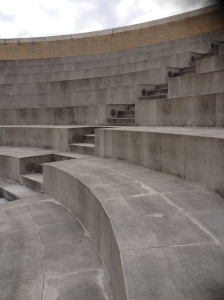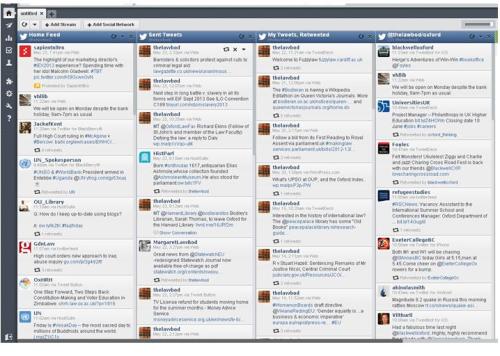Kat Steiner here again, one of the graduate trainees at the Bodleian Law Library. On Wednesday, Frankie Marsden and I headed down to London for the BIALL, CLSIG, SLA Europe Open Day, a day of presentations and tours based at the CILIP headquarters near Russell Square. We thought we’d give you a few of our thoughts on the day, especially on what we individually will take away from it.
A few acronym explanations before we start. BIALL is the British and Irish Association of Law Librarians, CILIP is the Chartered Institute of Library and Information Professionals, CLSIG is a special interest group within CILIP standing for Commercial, Legal and Scientific Information Group, and SLA Europe is the European and UK division of the Special Libraries Association. Still with me? Just the names alone were a lot to take in!

The Wellcome Library
Over the day, we heard 9 speakers, whose places of work included London law firms, the Law library of City University, the Wellcome Library, the British Medical Association, the Inner Temple, Linex (a company offering current awareness tools and aggregation for subscribers), and the British Library. It was fascinating to hear the stories of how they had reached their current jobs (often by a combination of luck, enthusiasm and perseverance), and their varied positions. It particularly stood out to me how many people mentioned TFPL, a recruitment agency, as being invaluable in helping them find jobs. I hadn’t heard of them, but I will definitely be looking into them now!
There was also the opportunity to go on a tour of either the Wiener Library, a collection for the study of the holocaust & genocide, the library of the London School of Hygiene & Tropical Medicine, or the library of the Institute of Advanced Legal Studies. As Law Bod trainees, Frankie and I both chose the IALS, and enjoyed a detailed tour and talk by David Gee, the Deputy Librarian. As the library takes three graduate trainees every year, he had a lot of insight and suggestions for what to do afterwards if you are thinking of going into law librarianship.
Several speakers were also from law firm libraries, or law librarians in other institutions, and it was very interesting to hear about their jobs in detail. I hadn’t personally thought much about specialising, or moving away from academic librarianship (I’m hoping to stay at the Bodleian while I do my library school masters), but there definitely seemed to be a lot to recommend ‘special libraries’. The chance to do real legal research was very attractive to me as an academic challenge (at the Law Bod, students are expected to do their own research, although there are lots of classes to help them learn how to do it). However, I’m not sure I could cope with the increased pressure, longer hours and difficult deadlines that come along with it. The rather better pay might sweeten the pill, though.

The Inner Temple Library
The talk that really stood out for me was from Simon Barron, a Project Analyst at the British Library. He focused on the concept of ‘digital librarians’, and the way that technology is transforming the information profession and will continue to do so. In the days of ‘big data‘ (a current buzzword that I’m still not hugely clear on – in my understanding, it can mean data sets so large that they allow statistical programs to crunch through them and draw remarkably accurate conclusions without any attempt at explaining how the causation between the conclusions and the data works), librarians who can code, use technology, and be willing to learn new technological skills will be more and more in demand. He described his current project with the British Library and the Qatar Foundation to create a digital National Library of Qatar. This is an ambitious project, involving huge numbers of documents to be digitised, including 14th- and 15th-century Arabic manuscripts. Simon’s job seemed to involve a lot of technological problem-solving, for example ‘how do we get this data out of this piece of software and into this other piece of software without losing it, or having to do it by hand’. He explained that his coding knowledge was entirely self-taught through Codecademy and that, although he didn’t consider it his crowning achievement, his colleagues were still very impressed when he made a spreadsheet where the boxes change colour depending on the data you enter.
Simon’s talk made a big impression on me, and really confirmed my feeling that the MSc in Information Science is for me. I have some basic experience with coding good practice (a 10-week internship at a software company, writing code in Perl), and the main thing I took away is that it’s really not that hard or scary, it just requires logic, perseverance (read: stubbornness even when it doesn’t work), and the willingness to have a go even if you’re not sure what you’re doing. I believe anyone who really wants to can learn to use technology, but they may not see the point. Simon emphasised the use of technology to automate what would be fairly simple human processes. This is a great point – if you can automate a simple action on a computer (for example, removing formatting from a text file, or averaging each row in a spreadsheet), you not only save time, you make the process scaleable to much larger sets of data, which would take humans far too long to deal with, and you reduce the possibility of human error, as long as your code actually works!
Anyway, you can see that this made quite an impression. Another thing I will take away is how many things are worth joining to get more involved in the information profession. You can join CILIP for £38 a year if you’re a student or graduate trainee, definitely worth doing! You can join SLA (of which SLA Europe is a chapter) for $40 a year if you’re a student (even part-time, but I’m not sure about graduate trainees). You can join BIALL for £17 a year if you are a full-time student. You might want to consider registering with TFPL. SLA Europe offers an Early Career Conference Award, which three of the speakers had won, allowing them to go to amazing conferences in San Diego, Chicago and Philadelphia. BIALL also offers an award for the best library school dissertation on a legal topic. And, finally, Information Architect is a job title it might be worth looking out for.
That’s pretty much all I have to say for this post (I’ve waffled for more than long enough). Frankie will be talking about the aspects of the day that she really liked, and I’m sure they will be very different! I just want to thank everyone who helped organise the conference – it gave me loads to think about, allowed me to meet plenty of other graduate trainees, and generally have a great time. For anyone who wants a more general idea of the day – the slides from the presentations that everyone gave can be found on the CLSIG website.
Read Full Post »





